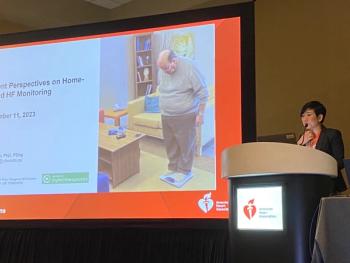
Peterson Health Releases Framework for Digital Assessments
The assessment framework developed by Peterson Health Technology Institute and the Institute for Clinical and Economic Research will prioritize products’ clinical benefits and economic impact of digital health technologies. The companies will announce the first set of health technologies to be reviewed by mid-October.
Peterson Health Technology Institute (PHTI) has
The assessments will evaluate digital therapeutics, chronic care management apps, remote patient monitoring, and administrative technologies, many of which include artificial intelligence. The assessment framework will prioritize products’ clinical benefits and economic impact, as well as their effects on health equity, privacy, and security.
“The digital health market is flooded with an overwhelming number of new technologies claiming to transform healthcare delivery in all sorts of ways,” Caroline Pearson, executive director of the Peterson Center on Healthcare (PCH), said in a
Peterson Health Technology Institute was formed in July 2023. It was launched by The Peterson Center on Healthcare with a commitment of $50 million to develop evidence-based assessments that will analyze the clinical benefits and economic impact of digital health solutions. The Peterson Center on Healthcare is a nonprofit organization founded in 2008 to develop strategies to improve quality and lower costs of healthcare. The PCH collaborates with universities, foundations, policy centers and other stakeholders, such as KFF and Civica Rx.
The development of the ICER-PHTI Assessment Framework involved experts in health technology assessment, clinical care delivery and health economics, as well as patients. The assessments are designed to help payers and providers make decisions based on clinical and economic benefits.
The selection of technologies to be evaluated will be based on market relevance, disease burden, level of spend and claimed savings, and evidence quality and availability. Similar to the ICER reviews, companies with products selected for evaluation will be given the opportunity to share evidence and information. PHTI will provide summary ratings that include whether evidence supports adoption or whether additional testing is needed.
PHTI officials said they will announce the first set of health technologies to be reviewed by mid-October.
Over the last few years, regulators have begun to grapple with how to regulate new digital technologies. In September 2020, the FDA announced the launch of the
But PHTI executives say there is still no clear evidence standards and this can lead to misalignment between evidence generated by developers and what is needed by payers.
Newsletter
Get the latest industry news, event updates, and more from Managed healthcare Executive.
























